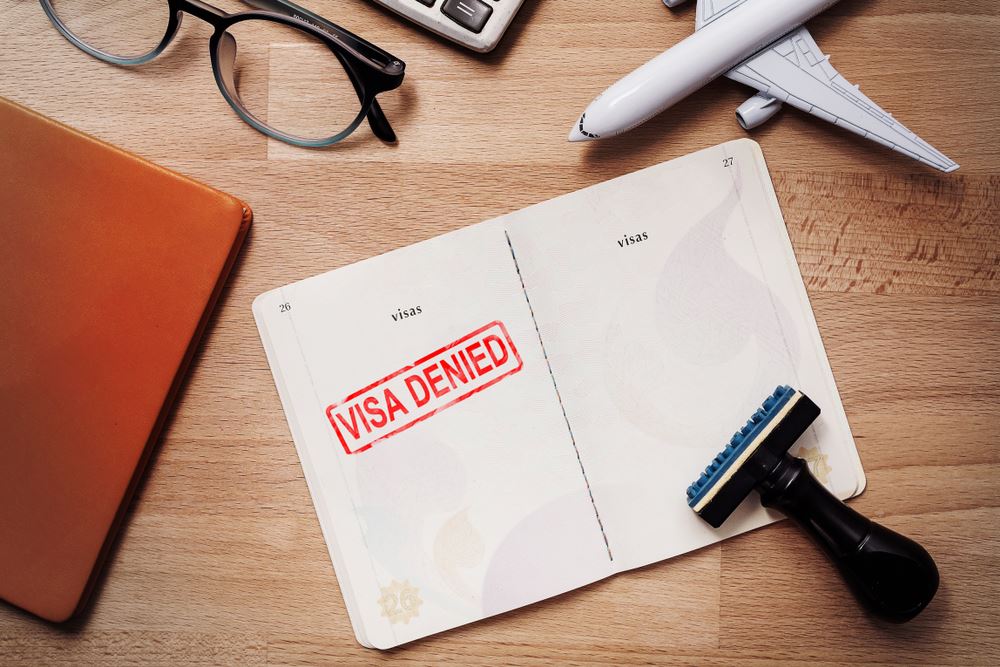Traveling to new places can be an exciting adventure, but knowing how legal issues can affect your plans is important. One common question many people have is whether a DUI (Driving Under the Influence) conviction in their history can prevent them from entering Canada. Let’s break down what you need to know.
If your need to enter Canada is urgent and you don’t qualify for Criminal Rehabilitation, an experienced DUI lawyer in Sandusky can assist you in applying for a Temporary Resident Permit.
What Are Canada’s Entry Requirements?
Canada is known for its strict entry requirements, especially concerning criminal records. A DUI can impact your ability to cross the border. However, the situation isn’t always black and white.
Temporary Solutions
The Temporary Resident Permit (TRP) is a tool used by Canadian immigration authorities to allow individuals with certain inadmissibilities, like a DUI, to enter Canada for a specific period.
The granting of a TRP is not automatic. The process involves a careful assessment of your circumstances. The key here is to demonstrate a significant reason for your visit. This reason can range from business obligations, family events, or tourism. Still, it must be compelling enough to outweigh the risks your DUI might pose in the eyes of Canadian immigration officers.
In applying for a TRP, you must provide detailed information about your DUI incident, including when it occurred, the specifics of your conviction, and any steps you’ve taken since then, like rehabilitation programs or community service. This information helps authorities understand the context and your current situation.

Another aspect of the TRP application is to justify your entry into Canada. This means showing that your visit is important and that you have plans to comply with Canadian laws and leave Canada at the end of your permitted stay. For instance, if you’re going to Canada for a business conference, evidence of the event and your role in it can be beneficial.
It’s advisable to apply well in advance of your intended travel date. Be prepared for the possibility of delays or requests for additional information.
Once granted, a TRP is usually valid for your visit to Canada for up to three years. However, they can cancel the permit anytime if you fail to adhere to its terms or your circumstances change.
The success of your application largely depends on how well you present your case. This is why many individuals seek legal guidance for this process. A lawyer can help articulate the significance of your visit, present your past DUI in a context that highlights your current reliability, and ensure that all the necessary documentation is ready.
Long-Term Solutions
When considering long-term solutions for traveling to Canada with a DUI on your record, Criminal Rehabilitation emerges as an option. This process can provide a more permanent resolution to the issue of inadmissibility.
Criminal Rehabilitation is a formal process whereby individuals with past criminal convictions can apply to Canadian immigration authorities to have these convictions overlooked. In the context of a DUI, once they deem you rehabilitated, your DUI conviction will no longer be a reason for Canadian authorities to deny you entry into the country.
The eligibility for applying for Criminal Rehabilitation hinges on a timeline. At least five years must have passed since completing your entire sentence related to the DUI. This timeline includes not just the time served, if any, but also the full payment of fines, the completion of any driving courses or rehabilitation programs ordered by the court, and the fulfillment of other conditions like community service. This five-year period shows a sustained adherence to the law and responsible behavior following your conviction.
When preparing to apply for Criminal Rehabilitation, one of the key elements is gathering comprehensive documentation. This documentation typically includes court records, evidence of completed sentences, and any relevant personal statements or references that can support your application. These documents collectively paint a picture of your journey from the time of the DUI conviction to your current standing as a responsible individual.
In the application, you’ll need to provide a detailed account of your DUI offense, including the circumstances surrounding it. This is not just a recount of the incident but an opportunity to reflect on what you’ve learned from the experience and how you’ve changed since then.
The application process also involves fees of up to $1,148.87. Processing time can vary depending on several factors, including the complexity of your case and the workload of Canadian immigration authorities. During this waiting period, it’s important to maintain a clean record, as any new offenses can negatively impact your application.
Once your application is approved and rehabilitated, this status is generally permanent. It means that your DUI conviction will no longer be a stumbling block for future travels to Canada. However, this rehabilitation status applies only to Canada and does not affect how other countries might view your DUI conviction.
Applying for Criminal Rehabilitation is a significant step that can be challenging. For this reason, many people opt to seek legal assistance. A lawyer can guide you through the application process, ensuring effective presentation of all aspects of your case and that you meet all the necessary criteria.
Why Does Canada Deny Entry to People with a DUI?
In Canada, the legal system categorizes offenses into two main types: indictable and summary offenses. Indictable offenses are considered more severe felonies in the United States, while summary offenses are less serious, similar to misdemeanors in the U.S.

Driving under the influence is uniquely positioned in Canadian law as a hybrid offense. This means that a DUI can be prosecuted either as a summary offense or an indictable offense, depending on factors such as the severity of the incident, the presence of aggravating factors, and the discretion of the Crown attorney. The flexibility in prosecuting a DUI in Canada holds significant implications for individuals attempting to enter the country with a DUI from another nation, especially the United States.
In the U.S., authorities typically categorize a DUI as a misdemeanor, except in cases where there are aggravating circumstances. However, when an American with a DUI attempts to enter Canada, Canadian border agents evaluate the offense based on its classification under Canadian law, disregarding how it is categorized in the U.S. Since a DUI in Canada can be an indictable offense, authorities view it as a serious crime. This perspective is why even a misdemeanor DUI from the U.S. can result in a person being considered criminally inadmissible to Canada.
The enforcement of these rules has become more strict due to the sharing of criminal databases between Canada and the United States. The Canadian Police Information Centre (CPIC) database, operated by the Royal Canadian Mounted Police (RCMP), is linked with the U.S. National Crime Information Center (NCIC). This connection allows Canadian border security full access to the FBI criminal database. As a result, when a traveler from the U.S. presents their passport at the Canadian border, their DUI record can be instantly accessed and flagged.
The scope of this information sharing means that convictions and DUI arrests can impact one’s ability to enter Canada. Even if an individual was acquitted or found not guilty in the U.S., the arrest record can be sufficient for Canadian border officials to deny entry. In such cases, border authorities might require the traveler to provide evidence or legal documentation proving their admissibility, such as court records showing the resolution of their case.
This level of scrutiny can often come as a surprise to many Americans. The idea that a past DUI, especially one that did not result in a conviction, can hinder travel plans to Canada is not commonly known. The implication is clear: any DUI arrest or conviction, regardless of its classification in the U.S., is treated with seriousness by Canadian border authorities.
What is the Legal Basis for Denying Americans Who Have a DUI?
The legal basis for Canada denying entry to Americans who have a DUI stems from specific provisions in Canada’s Immigration and Refugee Protection Act (IRPA). This act defines and enforces the criteria for admissibility into Canada, particularly in the context of criminality.
Under Section 36 of the IRPA, Canada can deem foreign nationals criminally inadmissible if they have convictions outside of the country for offenses that qualify as indictable offenses in Canada. Indictable offenses in Canadian law are serious crimes, somewhat akin to felonies in the United States.
Further clarifying this, IRPA 36 three A explains that an offense prosecutable either summarily (less serious) or by way of indictment (more serious) is treated as an indictable offense to determine admissibility. This is a key point because it captures a broad range of offenses, including those considered less severe in other countries, like the United States. This categorization is especially relevant to DUI offenses, classified as hybrid offenses in Canada. This implies that authorities can treat a DUI as either a summary or an indictable offense, depending on various factors related to the incident.
The practical implication of this legal framework means that even a single incident of impaired driving in the U.S., which might be deemed relatively minor in the state where it occurred, may lead to authorities barring a person from entering Canada. This can be true regardless of the specific details or severity of the incident.
The situation becomes even more complex with offenses like wet reckless driving, a common plea in states like California. In such cases, reducing the charge from a DUI does not necessarily exempt it from being considered equivalent to a DUI by Canadian authorities, given the involvement of impairment. Similarly, pleading down a DUI to a charge like dangerous or reckless driving, not explicitly mentioning alcohol in charges like dangerous or reckless driving, can still jeopardize entry into Canada. The Canadian equivalent of a dry reckless driving conviction, “dangerous operation,” is a serious crime with potentially severe penalties.
Even non-criminal DUI infractions, such as Driving While Ability Impaired (DWAI) in New York or Operating While Intoxicated (OWI) in Wisconsin, can pose barriers to entering Canada. Despite these being traffic violations rather than criminal convictions in the U.S., their nature as offenses involving impairment leads Canadian authorities to treat them with a level of seriousness that can affect admissibility.
Travel Planning Tips
Traveling to Canada with a DUI on your record requires careful planning. Whether you’re exploring temporary or permanent solutions to overcome the barriers your DUI might pose, there are several steps you should consider to ensure a smooth travel experience.

Check Your Eligibility
Understanding your eligibility is the first step in planning your trip to Canada. Canadian immigration laws are quite strict when it comes to admitting individuals with a DUI conviction. The key is to ascertain whether your DUI is considered a serious offense under Canadian law and how long ago it occurred. Typically, if more than ten years have passed since the completion of your sentence, you might be deemed rehabilitated by the passage of time. However, if it’s been less than ten years, you’ll likely need to explore other options like a Temporary Resident Permit or Criminal Rehabilitation. Researching these policies or consulting a lawyer can clarify your eligibility status.
Apply Early
If you plan to apply for a TRP or Criminal Rehabilitation, it’s advisable to start the process several months, if not a year, before your intended travel date. These applications can take considerable time to process, and delays are not uncommon. Starting ensures you have enough time to gather the necessary documents, prepare a comprehensive application, and address any issues arising during the process. It also reduces the stress of last-minute rushing, which can lead to mistakes or oversights in your application.
Prepare Documentation

Thorough documentation is necessary for your application, whether for a TRP or Criminal Rehabilitation. This includes legal and court documents related to your DUI, such as police reports, court judgments, proof of sentence completion, and any records of rehabilitation programs you’ve undertaken. Additionally, you should prepare documents that support the purpose of your visit to Canada, such as letters of invitation, travel itineraries, or business documents. Organizing these documents requires attention to detail and understanding what Canadian immigration officials are looking for in an application. Well-prepared documentation can significantly strengthen your case and demonstrate your commitment to complying with Canadian laws.
Contact a DUI Lawyer
Having a DUI doesn’t automatically mean you can’t go to Canada, but it does add extra steps to your travel planning. By understanding your options and possibly working with a lawyer, you can make informed decisions and potentially still enjoy your travels to Canada.
Remember, each case is unique, so it’s best to seek personalized legal advice. Safe travels!


